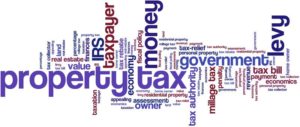 Statistics vary by area, but experts estimate that between 30 and 60 percent of taxable property in the United States is over-assessed, and this leads to higher property tax bills. Yet typically fewer than 5 percent of taxpayers challenge their assessments, even though the majority who do so win at least a partial victory when properly prepared.
Statistics vary by area, but experts estimate that between 30 and 60 percent of taxable property in the United States is over-assessed, and this leads to higher property tax bills. Yet typically fewer than 5 percent of taxpayers challenge their assessments, even though the majority who do so win at least a partial victory when properly prepared.
Are your property taxes too high?
Your 2020 tax assessment, arriving in February, will outline county, city and school taxes, as well as special assessments. Search online for your county and/or local taxing authority assessor’s office. This will provide the property information used to assess the tax value of your home. Check the accuracy of the assessor’s math and description of your property. Compare this to your bill and make sure your square footage, lot size, number of bedrooms and baths are listed correctly.
Mistakes Happen
Assessor records were once recorded on index cards. Errors have been made when this data was transferred to modern electronic records. A two-story may be recorded as ranch, the record may indicate a finished basement where there’s a crawl space, or the stated square footage may be incorrect.
Prepare Your Appeal
The assessor will give you an opportunity to file an appeal. This is usually in March. Your tax statement will provide directions for arranging a meeting with the assessor.
Your meeting won’t go well unless you’re prepared with a rational argument. Your Berkshire Hathaway HomeServices Tomie Raines Realtor is a professional who may be able to help by providing you with a comparable market analysis of similar neighborhood homes sold during 2019. Choose three to five properties with the same age, size, and condition of your home, noting any differences between the homes, such as additions or other improvements.
Always remember that the assessor’s judgement is based on the numbers and details.
Being prepared is your best argument.